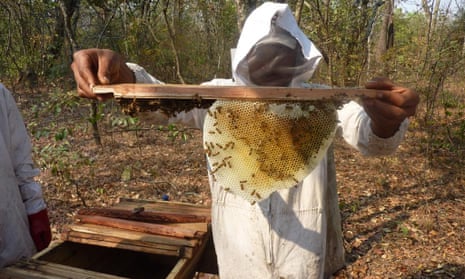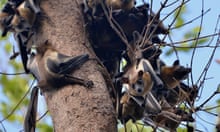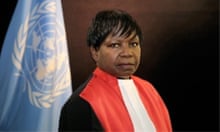A former hedge fund manager has become one of Africa’s most prolific single-source honey producers through a social enterprise that impacts thousands of families.
The Zambia-based organisation, Mama Buci – meaning “Mother Honey” in Bemba, the local language – was started 10 years ago by former trader Martin Zuch and has since grown to provide more than 10,000 families with income.
Having enjoyed a successful career as a trader in Switzerland, one that brought in “significant amounts of money”, Zuch accepted a chance invitation to church. A religious conversion followed that reoriented the 58-year-old’s life and left him looking for a different way of living.
An initial attempt at large-scale farming in Zambia near Victoria Falls failed, but a friend then invited Zuch to collaborate in exploring the commercial potential of beekeeping. So Mama Buci was born, its aim to producing a high-quality honey in the virgin forests of Zambia.
With his partner John Enright, Zuch installed top-bar beehives in trees across the bush, paying the families who owned the land to harvest the honey.
Almost a decade on, they have placed about 90,000 beehives, impacting between 5,000 and 7,000 families.
“It’s a social enterprise on a massive scale,” said Zuch. “John had started it off in a small way and I came in with the bigger investment to make things happen. We started by building beehives out of scrap wood, a top-bar hive, and at first the model didn’t work. But eventually we got it right by reducing the size of the hive and hanging them up in the trees.
“We give 10 hives to each family in the bush through our network and then, twice a year, we harvest from the local people and we pay them per kilo for the honey.
“We hang the hives high in the trees with a bamboo cane mechanism; we wax the inside of the hive and, within a few weeks, it attracts a swarm, and the swarm then builds its home in there.
“A family might make between $50 [£40] and $200 a year, some more and some less. But in the bush in Africa, the average earning can be as little as half a dollar a day, so this allows their children to go to school among many other things.”
In the next 12 months they are expecting to harvest 550-560 tonnes of honey, the equivalent of roughly 1.2m jars.
From there they will sell it, mainly in bulk, to retailers in South Africa and Britain, who then repackage it and sell it as their own high-quality honey.
“Here lies the problem, at the moment the majority of the honey gets sold [in] bulk for other people to put their labels on and add their premium. But we could impact so many more people in Africa if we could sell it ourselves” said Zuch.
“I don’t think this sort of social enterprise has been done in Africa on this scale before, and we’re looking for funding to build the next 100,000 bee hives. Zambia alone could take 1,000,000 hives at a minimum.
“We’re looking for investors that catch the vision and want to help us grow the model and increase our impact.”
They have also built a school that started with 60 pupils and now has 400, and they want to replicate that model as they continue to grow.
Zuch said environmental concerns are also central to the project, explaining that lack of pesticides greatly increases the taste of the honey, enough of which is left in each hive to sustain production.
They also hope to introduce blockchain technology so each jar of honey could be traced back to the exact hive where it had been produced.










Comments (…)
Sign in or create your Guardian account to join the discussion